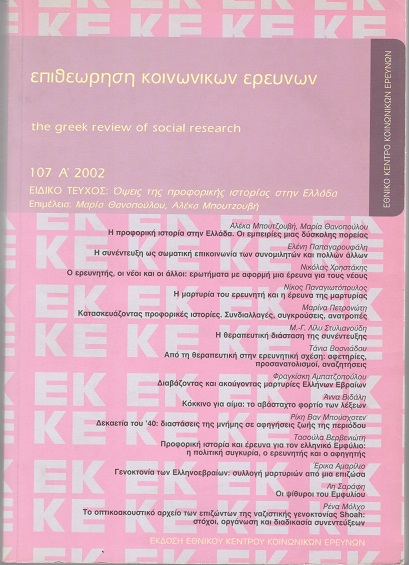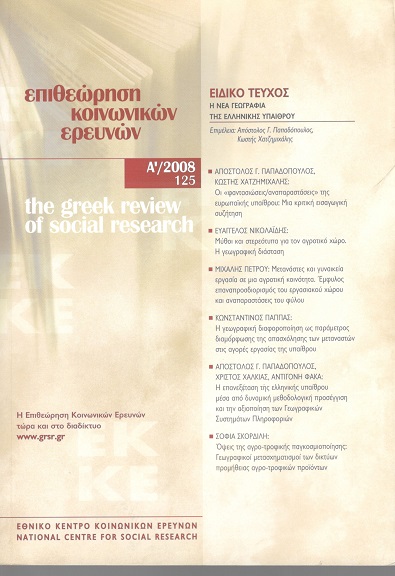Female motorcyclists: psychosocial career and aspects of femininity

Abstract
This paper explores the daily driving of motorcycles by women as a social phenomenon in its different variants. By analysing the life stories of twenty females thus constructing their career as motorcyclists, the study emphasises their experiential and timeless dimensions, while at the same time it focuses in the evolution of relationships in their familiar as well as their more extended environment. Moreover, in this paper it will be argued that the way in which these women «organise» and express their experiences and their thoughts concerning their motorcycling history, has everything to do with stereotype that motorcycling is a «male business». Having that in mind, it will be examined how they stage several, often very different, aspects of their feminine identities.
Article Details
- How to Cite
-
Χρηστάκης Ν., & Αναλυτή Α. (2013). Female motorcyclists: psychosocial career and aspects of femininity. The Greek Review of Social Research, 139, 57–94. https://doi.org/10.12681/grsr.76
- Issue
- 2013: 139, A
- Section
- Articles

This work is licensed under a Creative Commons Attribution-NonCommercial 4.0 International License.
Authors who publish with this journal agree to the following terms:
- Authors retain copyright and grant the journal right of first publication with the work simultaneously licensed under a Creative Commons Attribution Non-Commercial License that allows others to share the work with an acknowledgement of the work's authorship and initial publication in this journal.
- Authors are able to enter into separate, additional contractual arrangements for the non-exclusive distribution of the journal's published version of the work (e.g. post it to an institutional repository or publish it in a book), with an acknowledgement of its initial publication in this journal.
- Authors are permitted and encouraged to post their work online (preferably in institutional repositories or on their website) prior to and during the submission process, as it can lead to productive exchanges, as well as earlier and greater citation of published work (See The Effect of Open Access).






